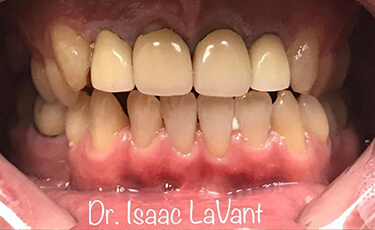Defeating Bruxism: Your Ultimate Guide to Stop Grinding Teeth
Do you often wake up with a dull headache or a sore jaw? Does your partner complain about noises from your side of the bed at night? If so, you may be suffering from bruxism, also known as grinding teeth. This condition affects millions of people worldwide and can lead to severe dental problems if left unchecked. But fear not, because we have compiled the ultimate guide to help you defeat bruxism and reclaim your peaceful nights (and your partner’s too!).
Understanding Bruxism
Bruxism, a term that might sound foreign to many, is a common condition that affects people worldwide. This medical term refers to the involuntary grinding, gnashing, or clenching of teeth, typically occurring during sleep. This nocturnal habit may seem harmless, but it can lead to a host of dental and health issues if left untreated.
The causes of bruxism are multifaceted, ranging from stress and anxiety to misaligned teeth or an abnormal bite. It’s also linked to certain sleep disorders, such as sleep apnea. The symptoms, on the other hand, can be subtle yet disruptive. They include headaches, jaw pain, worn-down teeth, and disrupted sleep, all of which can significantly impact your quality of life.
Understanding bruxism is the first step towards managing it effectively. Recognizing the signs early can help prevent potential complications like tooth damage and temporomandibular joint (TMJ) disorders. So, stay aware and take care of your oral health—it’s more important than you might think!

The Impact of Bruxism on Your Health
Bruxism, more commonly known as teeth grinding, may appear to be a simple, albeit annoying habit. However, this seemingly benign act can have profound implications on your health if left unchecked. This condition does not just affect your oral health; it extends its influence to various aspects of your overall well-being.
Starting with the oral impacts, bruxism can lead to severe tooth damage. The constant grinding wears down the enamel, the protective outer layer of your teeth, leading to sensitivity and even tooth loss in extreme cases. It can also cause temporomandibular joint disorders (TMJ), leading to chronic jaw pain and difficulty chewing.
Beyond the mouth, bruxism can disrupt your sleep, leading to daytime fatigue and concentration issues. It’s also been linked to sleep apnea, a serious condition characterized by breathing interruptions during sleep. Furthermore, the stress and anxiety that often trigger bruxism can also be exacerbated by it, creating a vicious cycle of mental distress.
Understanding the impact of bruxism on your health is crucial to tackling it effectively. If you suspect you might be grinding your teeth, seek professional help immediately. Remember, early intervention is key to preventing long-term damage to your health.
How to Identify Bruxism
Bruxism, or teeth grinding, can often be a silent affliction, going unnoticed until significant damage has been done. This is especially true for sleep bruxism, which occurs during the unconscious state of slumber. Whether you’re trying to identify bruxism in yourself or a loved one, understanding the signs and symptoms is crucial.
In adults, bruxism often manifests as jaw pain or discomfort, particularly upon waking. You may also experience frequent headaches or earaches, unexplained facial pain, or even disrupted sleep. A close look at your teeth might reveal signs of wear, such as flat tips or a chipped tooth. In severe cases, you could notice increased tooth sensitivity or loose teeth.
In children, detecting bruxism can be a bit trickier. They may not be able to articulate their discomfort, so you’ll need to watch out for more subtle signs. These can include complaints about a sore jaw or facial pain in the morning, difficulty chewing, or an increase in sensitivity to hot and cold foods. You might also hear a grinding sound while they sleep.
Remember, early detection is essential in managing bruxism effectively. If you or a loved one are experiencing any of these symptoms, it’s advisable to seek professional dental advice. With the right care and treatment, you can mitigate the effects of bruxism and protect your oral health.
Medical Treatments for Bruxism
Bruxism, or teeth grinding, is a pervasive condition with a variety of treatment options. These range from dental procedures to prescribed medications, each designed to address the unique needs and symptoms of the patient.
One of the most common treatments for bruxism is the use of dental appliances such as mouth guards or splints. Worn during sleep, these devices create a barrier between the upper and lower teeth, preventing direct contact and reducing the wear and tear caused by grinding.
In more severe cases, dental correction procedures may be recommended. These can include reshaping the chewing surfaces of the teeth, crowns, or even orthodontics. Such interventions aim to correct misalignment and reduce the urge to grind.
For some, bruxism is a symptom of broader health issues such as sleep disorders or anxiety. In such instances, medication may be prescribed. Muscle relaxants taken before bedtime can help reduce nighttime grinding, while anti-anxiety drugs can address the psychological triggers of bruxism.
However, it’s important to note that every treatment comes with potential side effects and should be discussed thoroughly with a healthcare professional. The best approach to managing bruxism is a tailored one, taking into account the individual’s symptoms, underlying causes, and overall health. With the right treatment plan, relief from bruxism is entirely achievable.
Natural Remedies and Lifestyle Changes
While medical treatments are effective in managing bruxism, don’t underestimate the power of natural remedies and lifestyle changes. These can not only alleviate the symptoms of teeth grinding but also address some of its underlying causes.
Stress and anxiety are often major triggers for bruxism. Incorporating stress management techniques into your daily routine, such as yoga, meditation, or deep-breathing exercises, can help calm your mind and reduce the likelihood of teeth grinding. Regular physical activity also plays a crucial role in reducing stress and promoting better sleep.
Dietary changes can also make a significant difference. Limiting the intake of stimulants like caffeine and alcohol, especially in the evening, can reduce muscle tension and promote better sleep, thereby mitigating nighttime teeth grinding.
Sleep hygiene is another critical aspect. Maintaining a regular sleep schedule, creating a peaceful sleeping environment, and practicing a relaxing bedtime routine can help improve sleep quality and reduce bruxism.
Lastly, simple habits like consciously relaxing your jaw during the day and avoiding chewing on non-food items can limit jaw clenching and teeth grinding.
These natural remedies and lifestyle modifications are not quick fixes, but with time and consistency, they can greatly contribute to managing bruxism. Always remember, it’s important to discuss these strategies with your healthcare provider to ensure they complement any ongoing treatments effectively.

Coping Mechanisms and Support
Living with bruxism can indeed be a daunting experience, but remember, you’re not alone in this journey. There are numerous resources and coping strategies that can provide the support you need to manage this condition effectively.
Support groups, both online and offline, can be an invaluable resource. They offer a platform to share experiences, learn from others who are going through the same challenges, and gain emotional support. Websites like HealthUnlocked and DailyStrength have active communities where you can connect with others dealing with bruxism.
Relaxation techniques, such as deep breathing exercises, progressive muscle relaxation, or guided imagery, can help reduce stress and muscle tension, two leading causes of bruxism. Regular practice of such techniques can significantly alleviate symptoms.
Biofeedback is another effective coping mechanism. This technique involves learning to control your body’s functions, like relaxing your jaw muscles, through physical cues. With professional guidance, biofeedback can help you gain better control over your bruxism.
Self-care activities like maintaining a balanced diet, getting regular exercise, and ensuring adequate sleep can also go a long way in managing bruxism.
Finally, don’t hesitate to seek professional help if bruxism is causing significant distress. Psychologists and therapists can provide tools and strategies to cope with anxiety or stress, which are often linked to bruxism.
Remember, coping with bruxism is not just about managing symptoms but also about improving your overall quality of life. With the right support and coping mechanisms, living with bruxism can become much more manageable.
In conclusion, bruxism is a prevalent condition that can cause significant discomfort and health complications. However, with a proper understanding of the condition, its causes, symptoms, and treatments, it’s possible to manage bruxism effectively. Remember, it’s important to consult with a healthcare professional if you suspect you have bruxism. With the right approach and resources, you can defeat bruxism and enjoy peaceful, restorative sleep once again.
https://www.google.com/maps?cid=10725474417078119454
